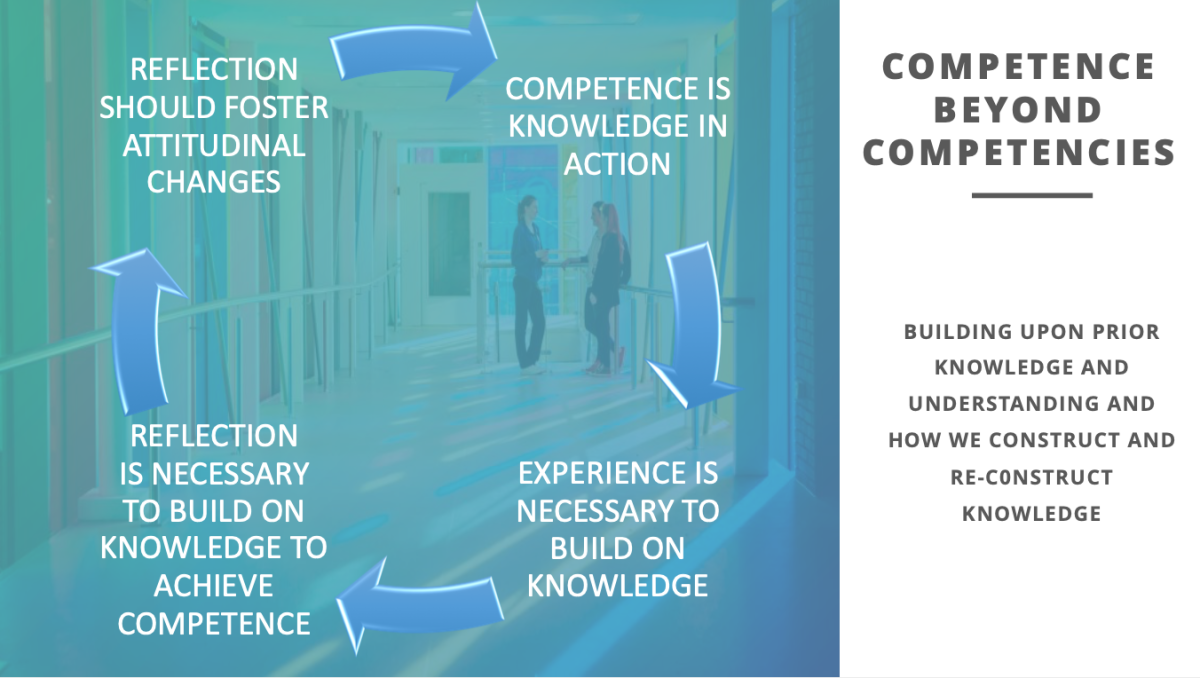

Dr Francesca Lorenzi and Dr Justin Rami promoting a dialogical model of feedback for trainee FET Teachers June 2019
Justin Rami presented the ongoing work by Rami & Lorenzi on assessment and feedback within teacher education at the Assessment in Higher Education (AHE) Conference in Manchester, UK in June 2019. Their work in this area was inspired by improving the students’ learning experience which closely connected with the promotion and implementation of an assessment strategy whose effectiveness relies on the quality of the formative aspect. The paper highlighted how assessment can promote or hinder learning and it is therefore a powerful force to be reckoned with in education. The literature on assessment makes it quite clear that assessment shapes and drives learning in powerful, though not always helpful, ways (Ramsden, 1997). A number of authors (Steen-Utheim et al. 2017; Merry et al, 2013; Careless, 2013 and 2016; Hyatt, 2005; Juwah & al., 2004; Bryan & Clegg; 2006; (Swinthenby, Brown, Glover, Mills, Stevens & Hughes, 2005; Nicol, 2010; Torrance & Prior, 2001) have advocated the encouragement of dialogue around learning and assessment as a means to enhance the formative aspect of assessment. Pedagogical dialogue and formative assessment share common principles such as the emphasis on the process (MacDonald, 1991); the need for negotiation of meaning and shared understanding of assessment criteria (Boud, 1992)(Chanok 2000)(Harrington & Elander 2003; Harrington & al. 2005) (Sambell & McDowell 1998) (Higgins Hatley& Skelton, 2001; (Norton, 2004; Price & Rust, 1999; O’Donovan, Price & Rust 2000; Rust, Price & O’Donovan, 2003) and the development of reciprocal commitment between assessors and assesses (Hyland 1998; Taras, 2001) based on trust (Careless, 2016) The paper supports the work of Kopoonen et al. (2016) that suggests a strong dialogic feedback culture together with the developmental role of feedback as part of future working life skills and their importance warrants greater integration into the higher education curricula as part of the development of expertise. This paper presented the results of a student with the identification of three key outcomes: firstly the development of a shared understanding of assessment criteria, secondly the establishment of a mutual relationship between assessors and assesses based on commitment and trust and thirdly a heightened self-awareness both in personal (efficacy) and professional (competence) terms. This research demonstrates the importance of a dialogical assessment model that enables student teachers to make sense of knowledge through reflection, professional decision-making and engagement. Furthermore, the results demonstrate how a dialogical approach to assessment and feedback can initiate a reflective process which may equip student FET teachers with knowledge transferable to professional practice in the Irish further education and training sector.
